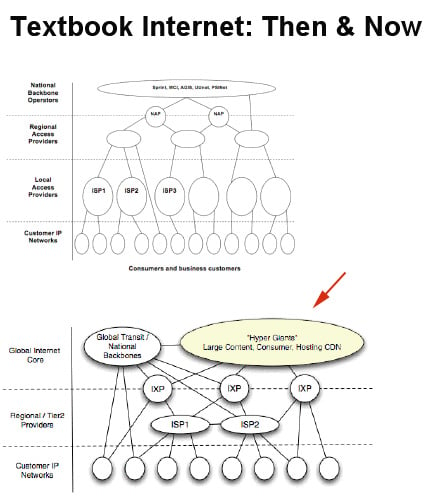1) The money given by <Generic Big Evil Internet Corporation> to <Generic Big Evil ISP> would partly go towards reducing subscription fees for customers; the degree to which this happened depends on the supply/demand relationship in the ISP market. The more competition there is, the more customers will benefit.
2) Why would the cost rise from now for the same access level? The only way it would happen is if fewer providers offer completely neutral internet access, which would reduce competition and lead to higher prices. But if that is true, then it means that we "100% neutral" buyers are being subsidised by people who are quite content with "50% neutral" or "100% google" ISPs. If there is a market for "50% neutral" access, at a lower price that at present, then it would be wrong to force them to subsidise the "100% neutral" access people. If there's no market for the "50% neutral" access, then there's no problem, is there?
Why would I use an ISP that did that?
There are maybe 30 or 40 internet providers in the UK that operate nationally. Here's a couple lists from a quick google:
http://www.ispreview.co.uk/isp_list/ISP_List_Bundle.php
http://www.thinkbroadband.com/isps.html
Maybe not all of them operate nationally, but I've
always been spoilt for choice when switching broadband providers. I've never,
ever had less than 20 or so to choose from, and I've lived in some really backward, rural places... (*cough* Wales *cough*). If you only have 2 or 3 providers in your area in the US, you need more competition.
EDIT: Here's a list of broadband providers for my childhood home in a village in Wales:
http://www.moneysupermarket.com/broadband/results.aspx?enquiryid=341312598 (I hope that link works...)
-----
I'll re-iterate what I said earlier: If there are serious negative consequences, then I'm fine with regulating it. But I see no a priori reason for that to happen.

